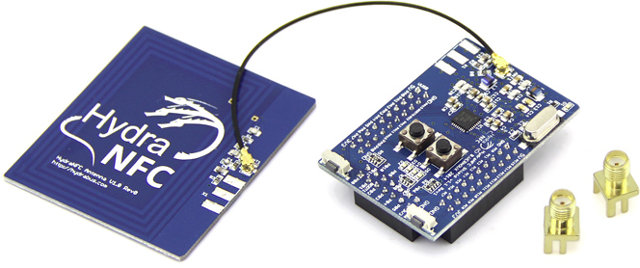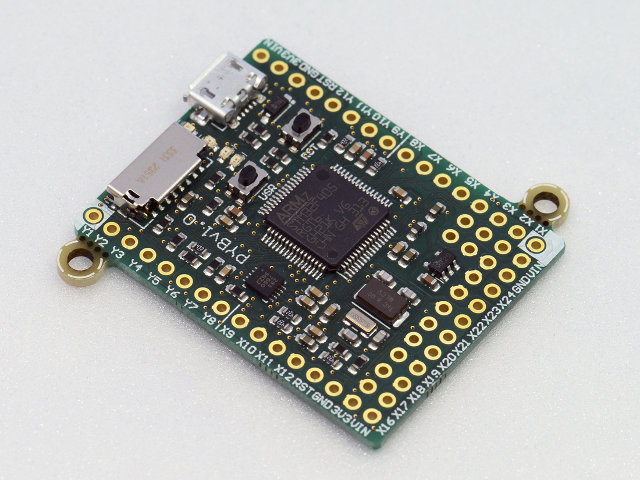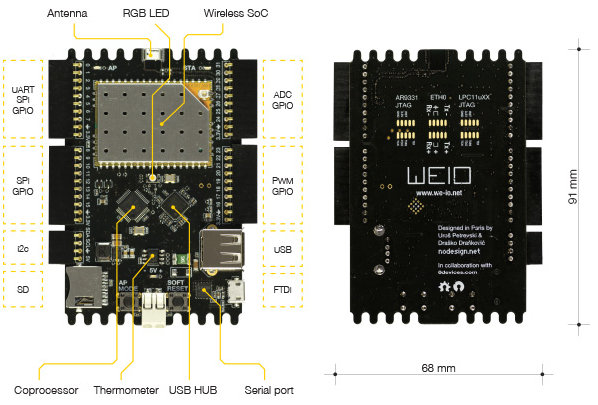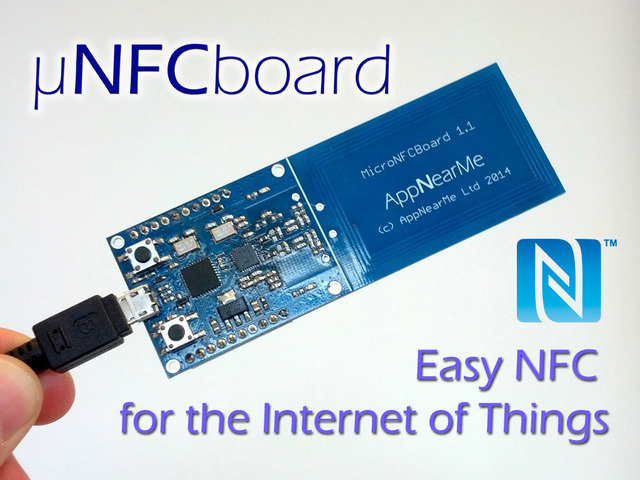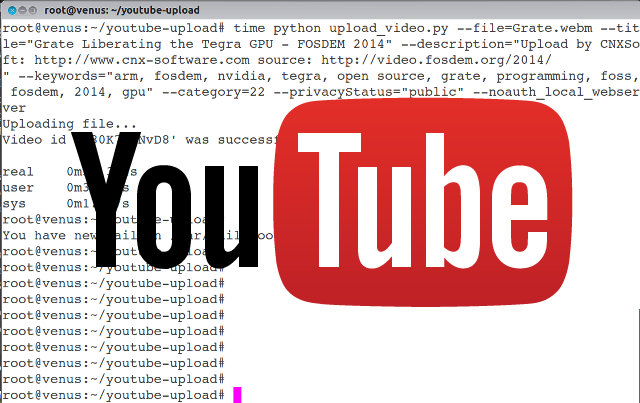Following up on my 2013 Crowdfunding Report, I’ve gone through all 55 Kickstarter and Indiegogo crowdunding projects featured on CNX Software between December 2013 and November 2014 (inclusive) to see how well they fared. The table below sort projects chronologically as they were published on this very blog. Date Project Crowdfunding Site Funded? Pledged amount / Goal Expected Delivery Actual Delivery Comments 2. Dec. 2013 Micro Python Kickstarter Yes 97,803 GBP / 15,000 GBP 03/2014 04/2014 Available @ https://micropython.org/store/#/store 5. Dec. 2013 Plugaway Kickstarter Yes $162,835 AUD / $50,000 AUD 04/2014 – People upset because of lack of updates. Project might be dead, and backers lost their money 6. Dec. 2013 AIRTAME Indiegogo Yes $1,268,332 / $160,000 05/2014 12/2014 People have started received the beta versions, after a massive 8-month delay 7. Dec. 2013 Crystal Board Kickstarter No $14,574 / $200,000 04/2014 – The project appears to be dead 10. […]
HydraBus is an Open Source Hardware STM32 Devkit with Support for NFC via HydraNFC Shield
Recently, I wrote about the public availability of a MicroPython board based on STMicro STM32F4 Cortex M4 support that can easily be programmed with Python. It turns out there’s another STM32 board called HydraBus, also supporting Micro Python firmware, or another embedded firmware based on ChibiOS, together with an optional HydraNFC shield capable of sniffing, reading/writing or emulating any 13.56MHz NFC tags. HydraBus Specifications: MCU – STMicro TM32F405RG micro-controller @ 168 MHz with 1MB flash, 192KB SRAM, and an FPU. External Storage – Micro SD card slot up to 48MHz (~24MB/s) Expansion Headers – 4 headers with access to 44 I/Os (some already used by micro SD and USB 1 & 2). USB – 2x micro USB connector including 1x OTG port, and 1x device/host port, both with ESD protection. Misc – Reset and user button, user LED, Power – 5V via micro USB port. Dimensions – 60mm x […]
Pyboard MicroPython ARM Cortex M4 Board is Now Available for $45
MicroPython is both a lightweight implementation of Python 3.4 programming language, and a board, aka pyBoard, based on STMicro STM32F4 ARM Cortex M4 micro-controller running Micro Python. The project had a successful Kickstarter campaign in 2013, and they’ve completed shipment of the perks to their backers last June. The company has now launched its own store, so let’s see the progress of the project. The board has been re-designed since Kickstarter campaign, but the specifications remains the similar, but with some extra I/Os exposed: MCU – STMicro STM32F405RG micro-controller @ 168 MHz with 1MB flash, 192KB RAM, and an FPU. External Storage – Micro SD card slot, supporting standard and high capacity SD cards Expansion Headers: 24x GPIO on left and right edges and 5x GPIO on bottom row, plus LED and switch GPIO available on bottom row 3x 12-bit analog to digital converters, available on 16 pins, 4 with […]
WeIO is an Open Source Hardware IoT Board Programmable from a Web Browser (Crowdfunding)
WeIO is an open source hardware board for the Internet of things with Wi-Fi connectivity and lots of I/Os designed by nodesign, a French based startup, in collaboration of 8devices, the makers of the Carambola boards. WeIO is powered by an Atheros AR9331 SoC running OpenWRT as well as an NXP LPC MCU for faster handling of I/Os and support for analog I/Os. One interesting aspect of this board is that it can be programmed via a web browser using HTML5 or Python, and it does not rely on the Cloud to store data. WeIO hardware specifications: SoC – Atheros AR9331 MIPS 24K Wireless SoC @ 400 MHz MCU – NXP LPC11xx ARM Cortex M0 MCU for analog I/O and real-time H/W interfaces System Memory – 64 MB DDR2 Storage – 16 MB flash + micro SD slot Connectivity – 802.11 b/g/n Wi-Fi with on-board antenna (AP and STA modes), […]
$70 MicroNFCBoard Brings NFC Connectivity to Any Board or Device (Crowdfunding)
AppNearMe MicroNFCBoard is a development platform for Near Field Communication (NFC) comprised of an NFC transceiver, an NXP MCU, and all software stack and tools you need for development. This board also exposes various I/Os that allows you to connect to external hardware or devices, and it can be used with an Arduino, Raspberry Pi, mbed or PC/Mac. Let’s go through the board specifications first: MCU – NXP LPC11U34FHN33/421 Cortex M0 MCU @ 48MHz, with 10KB RAM, 48KB FLASH, 4KB EEPROM NFC Transceiver – NXP PN512. Reader/Writer and card operation modes supporting ISO14443A/Mifare and FeliCa schemes. NFCIP-1 mode Splittable antenna USB – 1x micro USB port for power and programming I/O – 20x through holes with access to serial (UART), I2C, SPI, 4x ADC inputs, IRQ, Boot and Reset, and power pins. (2x pin header that you can solder are provided) Misc – Reset and bootloader enable push-buttons, 2x LEDs. […]
How to Upload YouTube Videos with the Command Line in Linux
Like many people, I access Internet via an ADSL connection at home. ADSL stands for “Asymmetric Digital Subscriber Line”, with Asymmetric being the key word here, as it just mean your download speed will be (much) higher than your upload speed. My ISP promises a theoretical 10 Mbps download speed, and 512 Kbps upload speed, and this is pretty close in reality: Data Rate: 10240 (downstream), 509 (upstream) kbps. Assuming a 265MB video, in the very best case (63 KB/s), it would take 1 hour and 12 minutes to upload a video to YouTube, but in practice it’s often closer to 2 or 3 hours. If it’s a video you’ve shot yourself, and copied inside your computer, there’s very little you can do, except processing the video with tools such as HandBrake to make it smaller before upload. But if the video files are located somewhere in the Internet, and […]
Micro Python Brings Python to MCU Boards and Robots (Crowdfunding)
Micro Python is an implementation of the Python programming language, written from scratch and optimized to run on micro-controllers such as the ones based on ARM Cortex-M cores. Damien George, the developer, also designed the Micro Python board powered by STMicro STM32F405 Cortex M4 MCU for the purpose of running Micro Python. Even though in this project, the star of the show is not the board itself, as Micro Python will run on other platform once it’s open source, let’s have a look at the hardware specifications: MCU – STMicro STM32F405RG @ 168MHz with 1MB flash, 192KB RAM, and an FPU. External storage – Micro SD slot 30 general purpose I/O pins – 5 USARTs, 2SPIs, 2 I2C busses, 14 ADC pins, 2 DAC pins, 2CANs, and 4 servo ports with power. Built-in USB interface Misc – 4 LEDs, a user switch, a reset switch, a real-time clock, and a 3-axis […]
You-Get – Video Download Script for YouTube, YouKu, DailyMotion, and More
YouKu is the equivalent of YouTube in China, and earlier today I wanted to download a video from the service, so I’ve looked for an application or script that can do the job in Linux. I’ve finally come across you-get, a python 3 script that claims to be able to download videos from an impressive number of websites, namely: YouTube Vimeo Coursera Blip Dailymotion Facebook Google+ Google Drive Tumblr Vine SoundCloud Mixcloud Freesound JPopsuki VID48 Niconico (ニコニコ動画) Youku (优酷) Tudou (土豆) YinYueTai (音悦台) AcFun bilibili CNTV (中国网络电视台) Douban (豆瓣) ifeng (凤凰视频) iQIYI (爱奇艺) Joy.cn (激动网) Ku6 (酷6网) MioMio h NetEase (网易视频) (v.163.com) PPTV.com QQ (腾讯视频) (v.qq.com) Sina (新浪视频) (video.sina.com.cn) Sohu (搜狐视频) (tv.sohu.com) 56 (56网) Xiami (虾米) Baidu (百度音乐) (music.baidu.com) SongTaste I won’t try all, but just test it with YouKu and YouTube. First things first, let’s install it:
|
1 2 3 4 5 |
git clone git://github.com/soimort/you-get.git cd you-get sudo apt-get install python3 python3-setuptools ./you-get -V make install |
Time to go to youku.com and download a video:
|
1 2 3 4 5 6 7 8 |
you-get http://v.youku.com/v_show/id_XNTQ1OTk3NTAw.html Video Site: Youku.com Title: 1 second boot QT app in linux-sunxi with A10 Type: Flash video (video/x-flv) Size: 5.45 MB (5711001 Bytes) Downloading 1 second boot QT app in linux-sunxi with A10.flv ... 100.0% ( 5.4/5.4 MB) [========================================] 1/1 |
Success! […]



